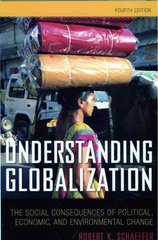1. Consider the following principal-agent model. A principal hires an agent to work on a project in return for wage payment w > 0. The agent's utility function is separable in the effort and wage received: we have u(w,e,;) = v(w) 902,), i 6 {1,2}, where v(-) is his von Neumann-Morgenstern utility function for money, and g(e,) is the disutility associated with effort level 6,- exerted on the project. Assume that the agent can choose one of two possible effort levels, e1 or 32, with associated disutility leveis 9(61) 2 5 3, and 9(32) 2 4/3. The value of the project's out- put depends on the agent's chosen effort ievel in a probabilistic fashion: If the agent chooses effort level 9.1, the project yieids output 1TH = 10 with probability p(H|el) = 9/3, and m, = 0 with the residual probability. If the agent chooses effort level 82, the project yields am 2 10 with probability p(H|e2) = 1/3, and 7r; 2 0 with the residual probability. The principal is risk neutral: she aims to maximise the expected value of the output, net of any wage payments to the agent. The agent is risk-averse, with v(w) = wlfz, and his reservation utility equals 0. (a) Suppose, first, that the effort levei chosen by the agent is observable by the princi- pal. Use a wage contract that specifies an effort level 6*, and an output-contingent wage schedule {wH,wL} where mg is the wage paid if 7r 2 H, and 11);, the wage if 7r 2 in. Show that, if effort is observable, it is optimal for the principal to choose a fixed wage contract (that is, 103 = 21);, = 10*), where the wage size is independent of the level of output. Provide brief intuition for this result. (b) If effort is observable, which wage 111* should the principal offer if she wants to implement 81? Which wage impiements 82? Which induced effort level provides a higher expected return to the principal, net of wage costs? (c) Suppose, next, that the agent's choice of effort level is not observable. In this case, a contract consists of an output-contingent wage schedule {1.03, 21);}. Which wage schedule will implement e1 in this case? Which expected net return does the principal get in this case? How does this compare with the value in part (b), where effort was observable? (d) If effort is not observable, which contract is best for the principai? How could she implement e2







